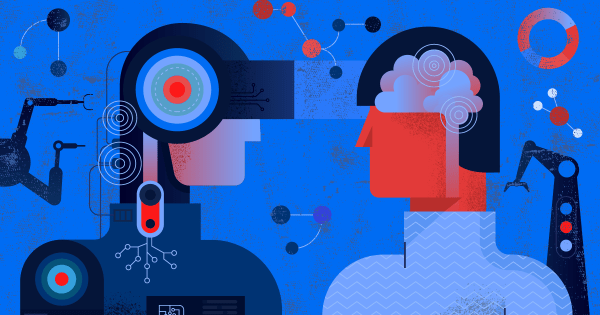Contents
The Rise of AI Agents in Ad Operations
Startups are increasingly betting on the power of AI agents—technology that performs tasks on behalf of humans—to take over the less glamorous, repetitive work involved in ad operations. Investors are showing strong support for this trend, with a significant influx of capital into the sector. This year alone has seen the emergence of new startups like Olyzon and Swivel, which focus on automating media buying tasks such as trafficking line items, rewriting video creatives for various audience segments, and reallocating budgets in real time. While human involvement is still necessary, these AI-driven solutions promise to be faster, more cost-effective, and potentially more accurate than traditional methods.
In 2025, agentic AI startups have raised an impressive $700 million, according to Crunchbase, as investors look to capitalize on the next wave of AI-powered productivity. Major tech companies are also entering the space, with giants like Google and Salesforce releasing their own AI agents designed to handle routine marketing tasks. A 2024 Gartner report predicts that by 2028, 33% of business software applications will incorporate AI agents, signaling a broader shift toward automation in daily operations.
Sim Blaustein, an early-stage venture capital investor at 1745 Ventures, explained that historically, ad operations have been a service-based industry, often managed in-house or through specialized consultants. “It makes sense to expect AI agents to replace and augment this business,” he said. However, he also raised a critical question: “Will these agents be able to achieve the margins and moats of classic software [or SaaS] businesses, or will they resemble the services businesses they replace?”
Here are five startups leveraging AI agents to automate the repetitive tasks behind modern marketing campaigns:
Salesforce’s New AI Agents Reduce Rote Marketing Tasks and Save Costs
MarkeTeam equips mid-market brands with AI agents that act as extensions of in-house marketing teams. These agents integrate with internal systems such as social media, analytics, and ad platforms to monitor trends, analyze competitors, and make real-time optimizations. The startup, which operates with a team of five AI agents, uses its digital workforce for content creation, SEO, and brand management.
Brands it works with: Glassy Baby, Accessibility Accelerator, Kimberly-Clark, Dunkin’ Donuts, Kellogg’s, Vimeo, Cisco
Funds: Raised $3 million in seed funding in 2025
AI model: Trained on open-source models such as Meta’s Llama, Google’s Gemma, and Qwen (developed by Alibaba Cloud)
Olyzon
Olyzon’s AI agents assist brands in planning and executing ads on connected TV platforms like Vizio. After receiving a campaign brief via chatbot, the agents identify target audiences and build media plans by mapping ads to relevant shows. They also pull brand assets directly from a company’s website—such as logos and product images—to generate ad formats like pre-roll and in-stream creative.
Brands it works with: PepsiCo, L’Oréal, Loewe, Mastercard, Nissan, Redbull, Ford, MG Motors, IKEA
Funds: Raised $5 million in a seed round in 2025
AI model: Uses OpenAI, DeepSeek, Anthropic, and Olyzon’s proprietary technology
ProRata
While ProRata’s core product is a search engine, the company expanded into advertising earlier this year, using AI agents to handle tasks like ad copywriting, creative matching, and campaign optimization, specifically for ads running within its own search platform.
Brands it works with: Brands across insurance, travel, fashion, and consumer electronics; ProRata declined to specify
Funds: Raised $25 million Series A in 2024
AI model: Uses a mix of open-source large and small language models, including Meta’s Llama 3
Streamr.ai
Streamr.ai’s AI agents automate both creative production and media buying for CTV ads. Its Creative Agent generates video ads using a brand’s images and videos from its website, Instagram, Shopify, and Google Business API, among others. The Campaign Planner Agent suggests budgets, reach forecasts, and targeting across key demographics, geographies, and behaviors. Meanwhile, the Campaign Optimization Agent produces and tests multiple creative variants for each audience segment, automatically reallocating budget based on real-time signals like website visits and QR code scans to maximize ROAS.
Brands it works with: Trident Coffee, Countryside Homes, Mondeca Design, and runs ads across Comcast’s Universal Ads, Channel 4, and ReachTV
Funds: Bootstrapped, with a $2.5 million seed round expected this fall
AI models: Uses Google’s Veo 3, OpenAI, ElevenLabs, Suno, among others
Swivel
Swivel’s AI agents automate ad monetization for publishers, performing up to 50,000 optimizations per day, compared to the 100–200 typically handled by human ad ops teams. Through a rules-based engine, publishers first set parameters for tasks like line item creation, which the AI then automates. The agents also surface strategic recommendations where, if a publisher sets a rule, such as adjusting price floors based on performance, the AI agent can analyze similar patterns across other demand partners and suggest expanding that logic to optimize yield.
Brands it works with: LG and Telly
Funds: $5.8 million in Series A funding in 2025
AI model: Developed in-house and trained on each client’s own data
As the use of AI agents continues to grow, the future of ad operations looks increasingly automated, efficient, and data-driven. With major players and startups alike investing heavily in this space, the transformation of the industry is well underway.




